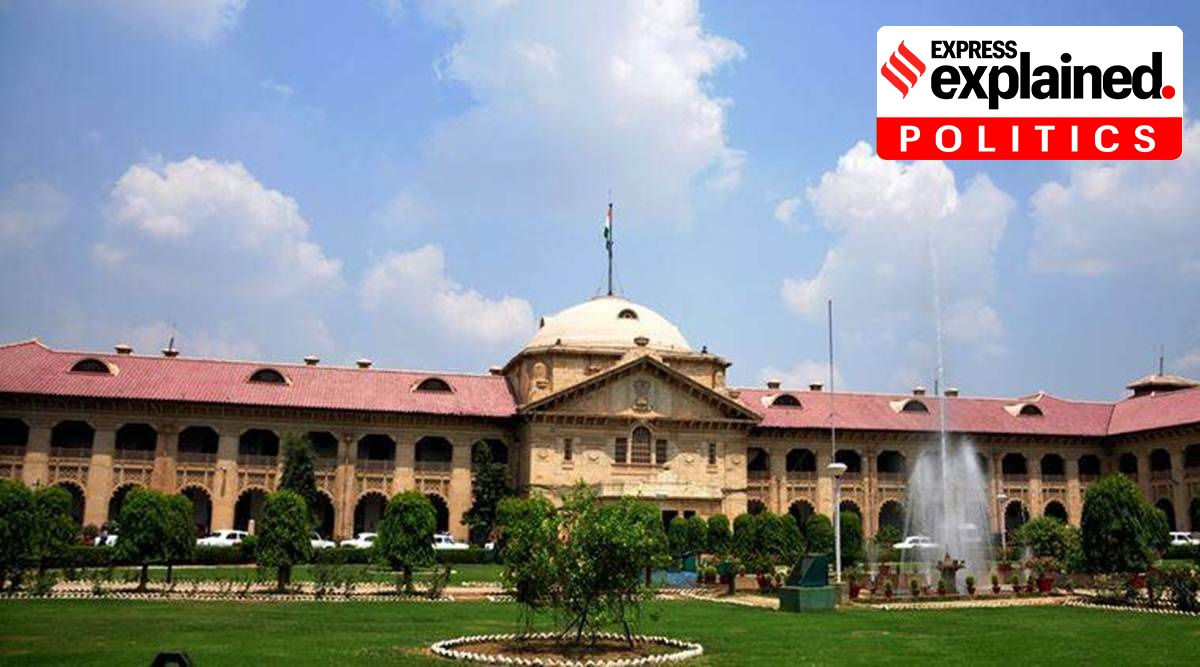
After the Allahabad High Court ordered the Uttar Pradesh government to hold urban local body elections without reservation for Other Backward Classes (OBCs) because the ‘triple test’ requirement for the quota had not been fulfilled, the state Wednesday set up a commission for this purpose.
The five-member commission will conduct a survey to ensure that the OBCs are provided reservation on the basis of the triple test, as mandated by the Supreme Court.
This is the first time that the triple test exercise will be carried out in Uttar Pradesh. Sources said the law department and the urban development department will lay down the guidelines to be adopted for the process.
What is triple test?
The triple test requires the government to complete three tasks for finalisation of reservation to OBCs in the local bodies. These include:
Subscriber Only Stories
a) To set up a dedicated commission to conduct a rigorous empirical inquiry into the nature and implications of the backwardness in local bodies;
b) To specify the proportion of reservation required in local bodies in light of recommendations of the commission, so as not to fall foul of overbreadth;
c) To ensure reservation for SCs/STs/OBCs taken together does not exceed an aggregate of 50 per cent of the total seats.
Advertisement
These triple test/conditions were outlined by the Supreme Court in the case of Vikas Kishanrao Gawali vs. State of Maharashtra and others, decided on March 4, 2021.
What procedure was UP following before this?
The Urban Development Department of the UP government had on April 7, 2017 issued orders to conduct a rapid survey for determining the population of OBCs. Based on such a rapid survey in each constituency of a municipality, seats were reserved in proportion to the population of the backward class of citizens in the constituency/ward concerned.
Advertisement
The BJP government on Wednesday said that all previous governments since 1994 had used the same rapid survey, for the polls held in 1995, 2000, 2006, 2012 and 2017.
The arrangement for reservation of backward classes in local bodies was made in the UP Municipalities Act, 1916 in 1994.
Why triple test instead of rapid survey?
The Lucknow Bench of the Allahabad High Court on Tuesday said that any inquiry or study into the nature and implications of the backwardness with respect to local bodies involves ascertainment of representation in such bodies. The court said such an exercise cannot be confined to counting of heads alone, as is being done through the rapid survey.
The court said simply granting reservation on the basis of population misses a very crucial factor for determination of backwardness, and that factor is political representation of the class or group concerned.
The High Court quoted the Supreme Court’s observation in the K Krishna Murthy case, which pointed out that the nature of disadvantages which restrict access to education and employment cannot be readily equated with disadvantages in the realm of political representation.
Advertisement
“Further observation made by Hon’ble Supreme Court in this regard is that the backwardness in the social and economic sense does not necessarily imply political backwardness. Elaborating the difference between the nature of reservation provided under Article 243-D and under Article 15(4) and 16(4), the Supreme Court in K Krishna Murthy also observed that there is an inherent difference between the nature of benefits that accrue from access to education and employment on one hand and political representation at the grassroots level on the other hand,” the HC said.
This inherent difference is that while access to higher education and public employment increases the likelihood of the socioeconomic upliftment of the individual beneficiaries, participation in local self-government is intended as a more immediate measure of empowerment for the community to which the elected representative belongs, the court said.
Bagikan Berita Ini














0 Response to "What is triple test, for OBC quota in urban local bodies - The Indian Express"
Post a Comment